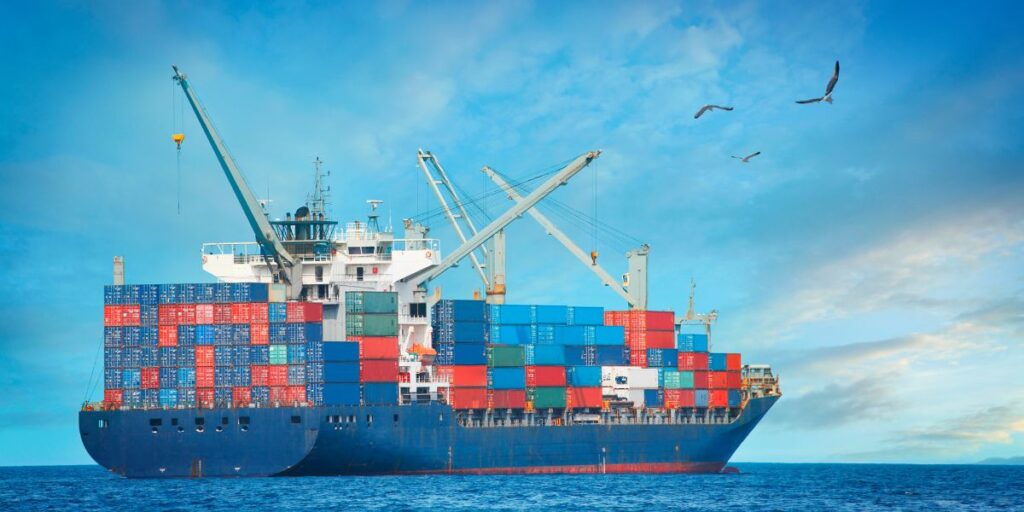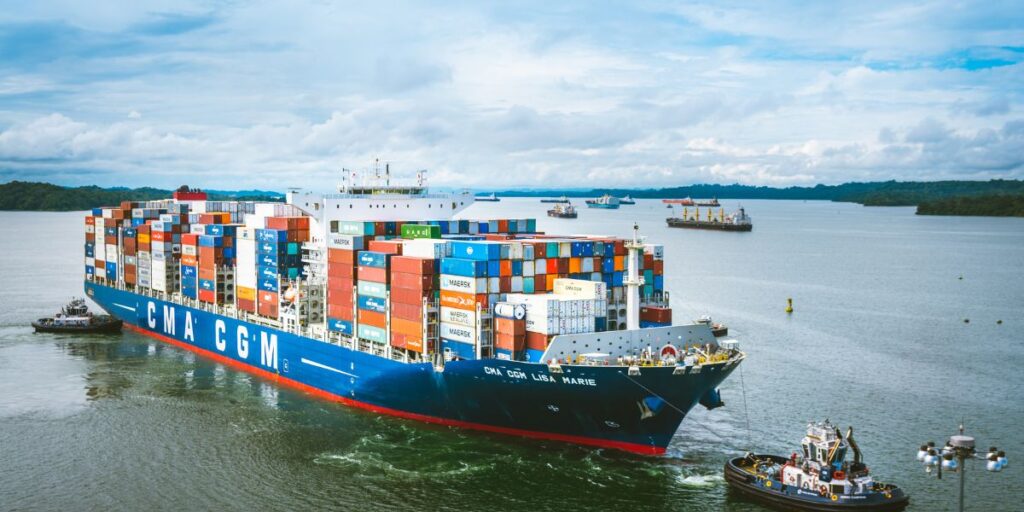Dubai and Pakistan have always shared strong economic and cultural ties. Being located in close proximity, they are each other’s natural trade partners. The two countries have a vast potential for trade, and the maritime route has been the most traditional means of transportation for the exchange of goods. Sea cargo from Dubai to Pakistan has always been an essential trade route that has facilitated bilateral trade between the two countries.
The trade relationship between Dubai and Pakistan has a long history and continues to flourish. The strategic location of Dubai and Pakistan makes sea cargo an essential mode of transportation for trading goods. The exchange of goods between the two countries has seen an upward trend over the years, and it is expected to grow even more in the coming years. With the increasing demand for consumer goods and the potential for economic growth in Pakistan, sea cargo from Dubai is a crucial link that connects the two countries. In this blog, we will discuss how sea cargo from Dubai to Pakistan has evolved over the years and what challenges it faces in the current scenario.
Current Scenario
The UAE is Pakistan’s largest trading partner in the Middle East, and the two countries share a robust bilateral relationship. Pakistan imports various products from Dubai, including textiles, chemicals, machinery, and electronic items, and exports rice, textiles, and leather goods to Dubai. As per the statistics, Dubai’s sea freight to Pakistan has increased significantly over the years, and the country’s port handles a considerable amount of cargo from Dubai.
Dubai is a significant transhipment hub for goods coming from China, Europe, and America. Therefore, Pakistan’s importers prefer using the UAE’s port as a transhipment hub to receive goods from different parts of the world. Moreover, with the increasing demand for consumer goods in Pakistan, Dubai has emerged as a key source for many essential commodities.
Challenges
Despite the booming trade between Dubai and Pakistan, the sea cargo sector faces some significant challenges that need to be addressed for the smooth functioning of this vital trade route. Some of the major challenges are as follows:
Infrastructure
The maritime infrastructure of Pakistan is still in its infancy stage, and the country lacks modern ports with state-of-the-art facilities. The existing ports in Karachi and Gwadar are insufficient to cater to the increasing volume of sea cargo from Dubai. Additionally, Pakistan’s shipping industry is also facing many challenges due to outdated vessels and inadequate port infrastructure, which lead to longer turnaround times and high operating costs.
Customs Clearance
Another significant issue faced by the sea cargo sector is the cumbersome customs clearance procedures, which can take up to several weeks, delaying the delivery of goods. The bureaucratic hurdles and corruption in the customs clearance process further add to the delays and increase the overall cost of doing business.
Security
Security is a primary concern for the sea cargo sector, especially in the current geopolitical situation. Terrorist threats, piracy, and smuggling are significant risks associated with the transportation of goods via sea. Therefore, it is imperative to have robust security measures in place to ensure the safety of the cargo and the crew.
Lack of Coordination
The lack of coordination between the various stakeholders involved in the sea cargo sector is another challenge. The private sector, the government, and the shipping companies need to work in unison to ensure the efficient functioning of the sector. However, due to the lack of coordination and communication, there are often delays and confusion that affect the smooth flow of cargo.
Environmental Concerns
Another significant challenge faced by the sea cargo sector is the growing concern for the environment. Shipping is a significant contributor to global carbon emissions and has adverse effects on marine life due to oil spills and the dumping of waste. The lack of proper waste management and pollution control measures at the ports and on the vessels is a significant challenge that needs to be addressed. The shipping industry needs to adopt sustainable practices and invest in green technologies to reduce its carbon footprint and mitigate the adverse effects on the environment.
Solutions
To overcome the challenges faced by the sea cargo sector, the following solutions can be implemented:
Infrastructure Development
Pakistan needs to develop modern ports with state-of-the-art facilities to cater to the increasing volume of sea cargo from Dubai. The government needs to invest in upgrading the existing ports and developing new ports in different parts of the country. This will not only reduce the turnaround time but also increase the efficiency of the cargo handling process.
Customs Reform
To improve the customs clearance process, the government needs to simplify the procedures and reduce the bureaucratic hurdles. The customs clearance process should be transparent and efficient to ensure the timely delivery of goods. The government can also adopt modern technology to automate the customs clearance process and reduce the chances of corruption.
Security Measures
To ensure the safety of the cargo and the crew, the government needs to implement robust security measures at the ports and on the vessels. The government can collaborate with international organizations and security agencies to implement best practices and training programs to enhance the security of the sea cargo sector.
Coordination:
To improve coordination between the various stakeholders, the government needs to establish a dedicated authority or agency responsible for overseeing the sea cargo sector. The agency can work as a bridge between the private sector, shipping companies, and the government, ensuring smooth communication and efficient collaboration. The agency can also work towards developing a uniform set of standards and regulations for the sea cargo sector, ensuring that all stakeholders work towards a common goal of improving the sector’s efficiency. Moreover, regular meetings and consultations can be held between the stakeholders to address any issues and work towards finding solutions collaboratively.
Conclusion
In conclusion, sea cargo from Dubai to Pakistan plays a crucial role in bilateral trade between the two countries. Despite the challenges faced by the sector, there is a vast potential for growth and development. To harness this potential, the government needs to invest in modern infrastructure, simplify customs clearance procedures, enhance security measures, and improve coordination between the stakeholders. With the implementation of these measures, sea cargo from Dubai to Pakistan can continue to thrive and contribute significantly to the economic growth of both countries.



